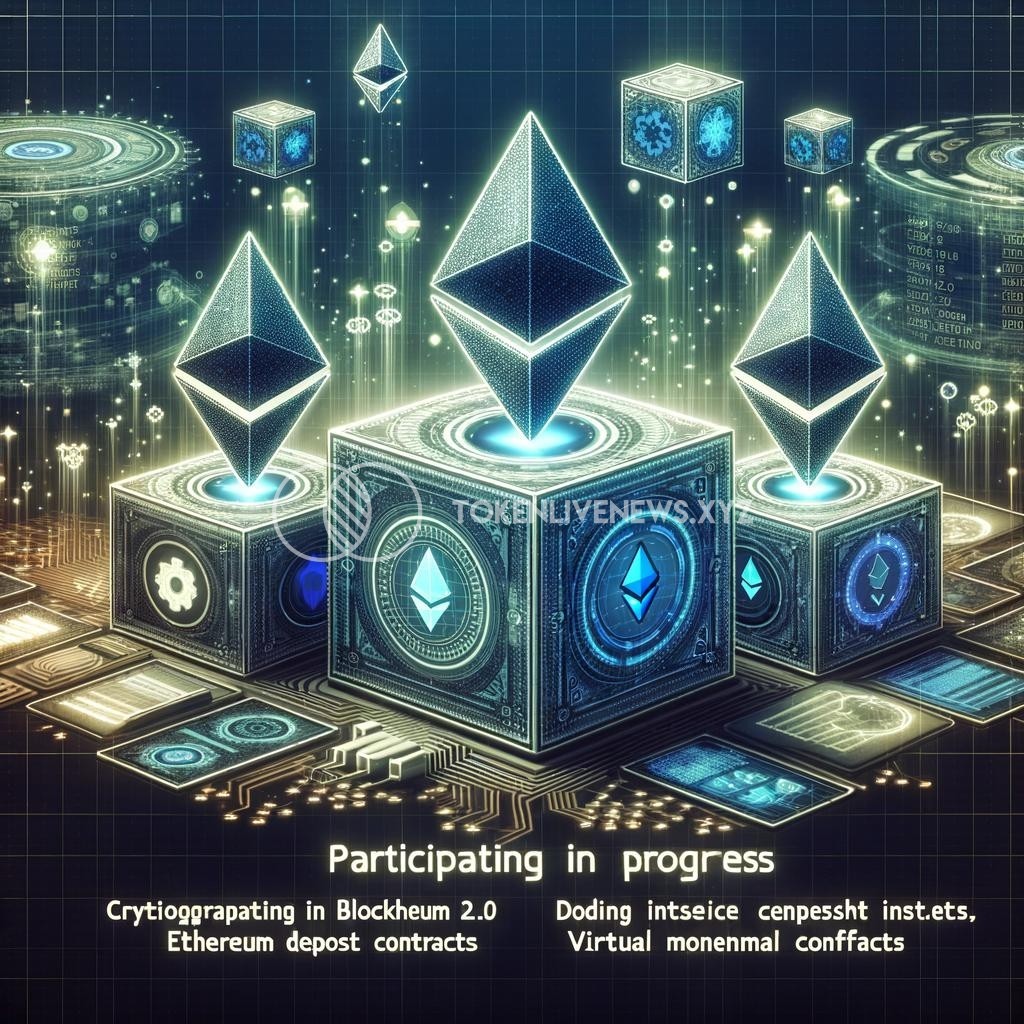Title: Participating in Progress: Ethereum 2.0 Deposit Contracts
Introduction:
As the cryptocurrency industry continues to evolve, Ethereum, the second-largest blockchain platform, is gearing up for a major upgrade known as Ethereum 2.0. With its long-awaited implementation, Ethereum aims to address some persistent scalability and security issues that have hindered its growth. One fundamental aspect of this upgrade is the introduction of Ethereum 2.0 deposit contracts, which will play a crucial role in ensuring the network’s transition from a proof-of-work to a proof-of-stake consensus mechanism. In this article, we will explore the significance of Ethereum 2.0 deposit contracts and shed light on how users can participate in this exciting progress.
Understanding Ethereum 2.0 Deposit Contracts:
Ethereum 2.0 deposit contracts function as the foundation for the network’s shift to a proof-of-stake consensus protocol. These smart contracts enable users to deposit their ETH (Ethereum’s native cryptocurrency) into a dedicated address, signaling their interest in becoming validators on the new network. Validators, in return for their participation, will be tasked with securing the network, validating transactions, and proposing new blocks, all while earning rewards in the form of ETH.
The Process of Participating:
To participate, users interested in becoming validators must send a specific amount of ETH, currently set at 32 ETH, to the Ethereum 2.0 deposit contract address. This deposit serves as a security measure to deter malicious behavior on the network. Users must also consider that their deposit will be locked until Ethereum 2.0’s development phases are completed.
Next, users need to choose between becoming a solo validator or pooling their funds with others to form a staking pool. While solo validators have complete control over the validator client and their rewards, they face higher risks, such as network downtime. On the other hand, staking pools allow users to delegate their ETH to professional validators who handle the technical aspects and, in turn, distribute rewards proportionally among participants.
Important Considerations:
Before participating in Ethereum 2.0 deposit contracts, it is crucial to keep certain factors in mind:
- Technical Requirements: Validators must possess technical knowledge and a reliable setup to ensure uninterrupted network participation.
- Security: Users should exercise caution when selecting staking pools, as the security and reputation of the pool operator are vital for protecting their deposited funds.
- Rewards and Penalties: Validators should thoroughly understand the reward and penalty mechanisms associated with the Ethereum 2.0 staking system to optimize their earnings and avoid any potential penalties.
Conclusion:
Ethereum 2.0 deposit contracts mark a significant milestone in the network’s progression towards improved scalability and security. By actively participating in Ethereum 2.0 as a validator, users not only contribute to ensuring the network’s integrity but also have the opportunity to earn rewards for their commitment. However, potential participants must familiarize themselves with the technical requirements, security considerations, and reward mechanisms associated with the process. As Ethereum continues to evolve, engaging in the transition to Ethereum 2.0 can be not only financially rewarding but also an exciting way to actively participate in progress and support the future of decentralized finance.







